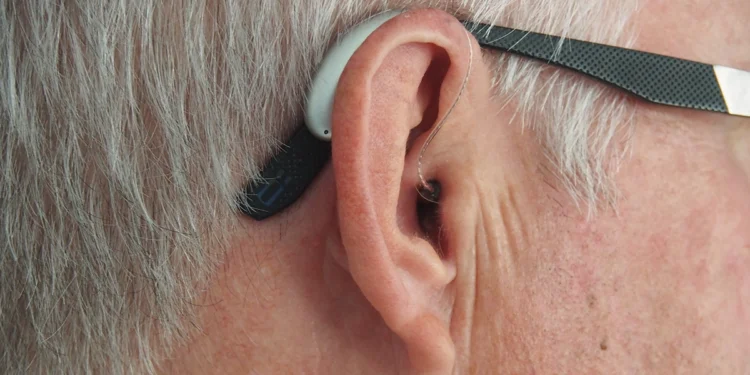The world is a very noisy place and extreme noise can affect our hearing significantly. Other factors that can damage our hearing include infections, injuries, diseases, drugs or birth impairments. Also, for many, hearing will slowly deteriorate with age.
Types of Hearing Loss
Conductive
This is a hearing loss that occurs in the outer or middle ear. Possible causes are perforation of the eardrum, ear infections, fluid in the middle ear or damage to the tiny bones called ossicles, that are responsible for amplifying sound.
Sensorineural
Sensorineural hearing loss is responsible for approximately 90% of hearing losses. It can be caused by damage to the delicate hair cells in the inner ear.
These hair cells are responsible for sending signals to the brain and allow us to hear clearly. The most common causes of this loss are noise and the natural ageing process, which is often prompted by genetic causes.
Friends and family are usually the first to notice your hearing loss. Those around you may get the impression you are not listening to them. They may find themselves having to repeat things more often. They may tell you your television is too loud.
The problem is that when your hearing starts to get worse, it doesn’t mean everything just becomes quieter. Often some noises are loud and clear, whilst others become faint and indistinct so you cannot hear what they are saying as the speech is not clear.
Common problems will be with soft or higher pitched consonants such as s, f or th, so you may hear the sentence but have to guess some of it. Often, by the time you have worked it out, the conversation has moved on.
The Consequences of Untreated Hearing Loss
A new report published by the Lancet Commission shows that hearing loss is the largest modifiable risk factor against dementia. In fact, mild hearing impairment can increase one’s risk of dementia by twofold, moderate hearing loss can increase the risk threefold and severe hearing loss can increase it fivefold. This is due to the fact that hearing loss leads to lowered mental stimulation, isolation, and ultimately, cognitive decline.
Other consequences of untreated or inadequately treated hearing loss can be increased mental load. Having to guess what people are saying and what’s happening increases the mental load and leaves less mental capacity for remembering and performing.
Another consequence can be social isolation or depression because people feel unable to cope with complex sound environments and may start switching off from conversations or avoiding them completely.
Studies have also shown that untreated hearing loss can lead to a three-fold risk of poor balance and fall related injuries.
The sooner you treat your hearing loss, the easier and better it is for your brain.
Consulting your Hearing Care Professional
It is often very overwhelming to know where to start with looking for help with your hearing. At Hearing Choices, we will talk to you about your unique needs and wishes and make a personalised recommendation that is bespoke to you.
When hearing aids are tailored to your unique listening needs and lifestyle, you will get a more natural sound without having to concentrate so hard to understand things.
Hearing aids are designed to support your brain with quality sound information that is necessary to maintain overall brain health. They help you to:
Concentrate clearly on selected sounds
Improve understanding of speech
Decrease the effort needed for attentive listening
Enhance memory recall.
All of which will improve and boost your quality of life, making it more enjoyable and allowing you to flourish, whether in your own home or out in a crowd.
Hearing Choices UK, based in Kings Sutton Millennium Hall, is run by professional Audiologist, Lisa Summersell, BA (Hons), RHAD, MSHAA.
With over 18 years experience Lisa provides expert and professional advice on all hearing needs ranging from Hearing tests, latest digital technology hearing aids, invisible hearing aids and ear wax removal.
Please feel free to contact us for an informal chat if you would like to discuss any of these issues or have questions of your own.









